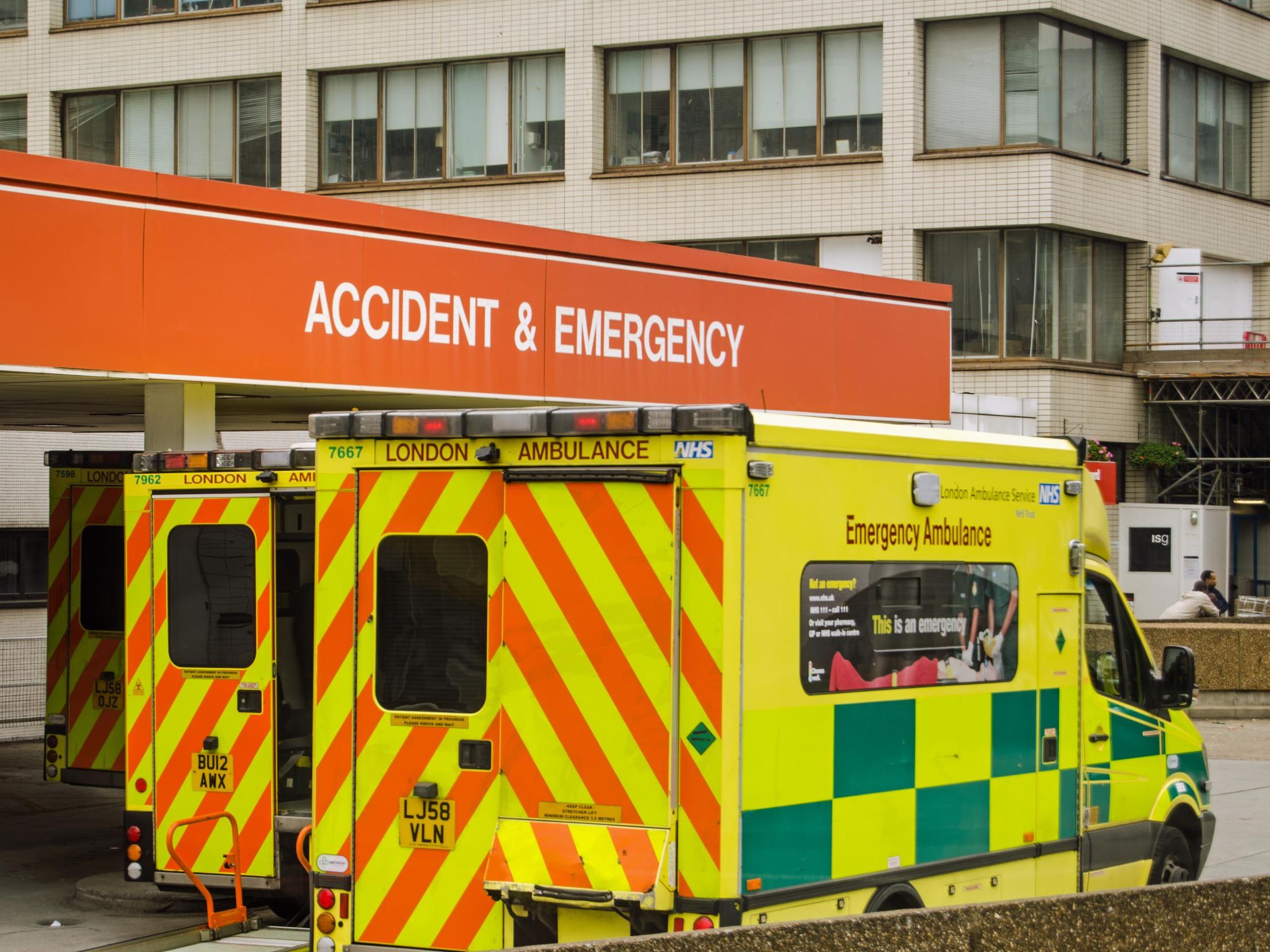Number of children admitted to A&E with mental health problems jumps 330 per cent over past decade
‘People are being made to wait longer for help and more children are reaching crisis point’ – Andy Bell, Centre for Mental Health think tank

Your support helps us to tell the story
From reproductive rights to climate change to Big Tech, The Independent is on the ground when the story is developing. Whether it's investigating the financials of Elon Musk's pro-Trump PAC or producing our latest documentary, 'The A Word', which shines a light on the American women fighting for reproductive rights, we know how important it is to parse out the facts from the messaging.
At such a critical moment in US history, we need reporters on the ground. Your donation allows us to keep sending journalists to speak to both sides of the story.
The Independent is trusted by Americans across the entire political spectrum. And unlike many other quality news outlets, we choose not to lock Americans out of our reporting and analysis with paywalls. We believe quality journalism should be available to everyone, paid for by those who can afford it.
Your support makes all the difference.Reduced community services and rising mental health issues among Britain’s youth have fuelled a 330 per cent surge in crisis admissions at hospital emergency departments.
A crackdown on the use of police cells for youngsters needing a specialist mental health hospital bed has also meant hospital A&E departments are increasingly the default option, The Independent has been told.
Since 2010 the number of children and young people admitted to an A&E and diagnosed with psychiatric conditions has increased 330 per cent.
The rise in A&E admissions comes as new data shows NHS mental health trusts are restricting services for children unless they are severely unwell.
Analysis of referral criteria used by 29 NHS mental health trusts, by Pulse magazine, found a third only accept patients with “severe/significant” conditions.
Just six out of the 29 trusts accept referrals for children with all severities of mental health problems.
In some cases GPs say children have attempted suicide in order for their referral to be accepted.
Dr Jonathan Heatley, a GP in West Sussex, said: “One way to get to the system very quickly is to attempt suicide. Mental health services wash their hands. They just say ‘it doesn’t meet our criteria’, but don’t suggest who does.”
Dr Maddi Ridley, a GP in Essex, said: “Referrals come back saying the patient doesn’t meet the criteria and suggesting where the child or adult can get support locally from counselling services run by charities.
“But often they need a doctor or a psychiatrist and charities don’t have that option. We’ve seen quite a number of deaths by suicide in teenage children in our area. Children are really struggling with mental health and we don’t have a lot to offer.”
GP referrals for children’s mental health services are rising – up by 18 per cent between 2017-18 and 2018-19.
The delays and pressures on NHS mental health services have added to demand seen in A&E departments.
According to NHS data there were 6,161 children below the age of 18 admitted with a psychiatric problem in 2009-10.
The numbers have risen every year since to a peak in 2018-19 of 26,593 – the equivalent of 72 a day.
Andy Bell, deputy chief executive at the Centre for Mental Health policy think tank, said the data was not a surprise.
He warned that thresholds for support in the community had been reduced and services were fragmented as demand had risen alongside a reduction in the use of police cells for children sectioned under the Mental Health Act.
“There has been a significant increase in demand but we haven’t seen an increase in capacity. That will be one reason for this in that people are being made to wait longer for help and more children are reaching crisis point. A&E is not the best place to be if you are having a mental health crisis,” he said.
He said anecdotal evidence suggested some children were even being turned away from mental health services and being told “they are not ill enough”, which meant problems were not being tackled earlier.
NHS Digital, which compiled the data from hospital episode statistics, said that the total admissions did not necessarily represent the numbers of patients as some children could attend A&E more than once.
It also said changes over time could reflect greater awareness and recording of psychiatric conditions by NHS staff in A&E departments.
An NHS England spokesperson said: “The NHS is actually ahead of its target on ensuring as many children as possible receive mental health care – seeing an extra 53,000 children, teenagers and young adults last year, a 14 per cent increase on the year before, and with 22 per cent more staff in services than five years ago.
“Meanwhile, the NHS long-term plan clearly sets out that all children and young people experiencing a mental health crisis will be able to access crisis care 24 hours a day, seven days a week by 2023-24.”
According to NHS England the prevalence of mental health problems in children aged between five and 15 has risen from 9.7 per cent in 1999 to 11.2 per cent in 2017.
It is also creating a new ring-fenced local investment fund worth at least £2.3bn a year by 2023-24.
Join our commenting forum
Join thought-provoking conversations, follow other Independent readers and see their replies
Comments